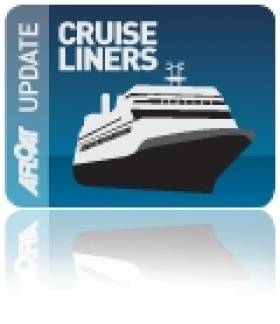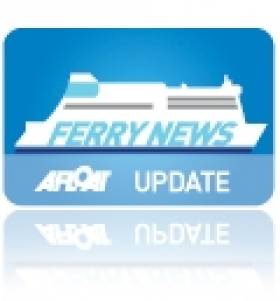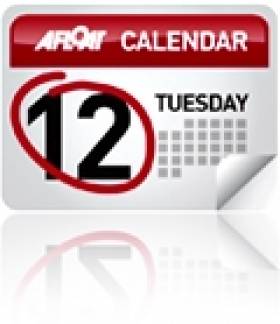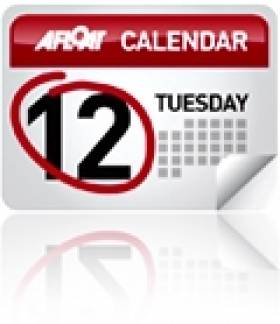Displaying items by tag: Eoghan Corry Expert Travel Clinics
Cruise Holiday Exhibitors Visit 25th Holiday World Show, Dublin
#CruiseLiners – Celebrating its 25th year of making holidaymakers dreams come true, the Holiday World Show, Dublin returns to the RDS Simmonscourt Pavillon in Ballsbridge, starting tomorrow and over the weekend of 25-26th January.
The show is a one-stop shop of inspiration, advice and spectacular offers to broaden the horizons of those seeking their ideal break in 2014. Almost 1,000 travel experts from 50 different countries will in person at the show offering the best holiday advice and tips to make sure that the perfect holiday.
Considering taking a cruise holiday but unsure where to start looking? the first port of call is a visit to the Holiday World Show, to ask all those important questions and get excellent discounts on cruise holidays.
As usual holiday advice including cruise (& ferry) operators is available free throughout the three-day show with Ireland's best known travel journalist, Eoghan Corry, Editor of Travel Extra Magazine, a serial author of books on travel, writes a column in the Evening Herald and provides travel advice on RTE Radio 1.
Eoghan Corry's Expert Travel Clinics will have experts from around the world on hand to answer consumer questions from the floor. For a list of travel clinic times and topics click this link.
For information on the Holiday World Show opening times and admission, visit www.holidayworldshow.com/visit/dublin/
Ferry & Cruise Exhibitors at Holiday World Show, Dublin
#HolidayWorldDublin- The annual Holiday World Show, Dublin is underway having opening yesterday in the RDS Simmonscourt Complex, Ballsbidge. As previously reported, Eoghan Corry's Expert Travel Clinics will include talks on those considering taking a cruise.
The FREE travel clinic (see times) will have expert speakers from a broad variety of holiday options from around the world, and they will be on hand to answer consumer questions from the floor.
Among the Ferry & Cruise Exhibitors are Celtic Link Ferries, Stena Line, Shannon Ferries, Hurtigruten, Azamara Cruises, RCL, P&O Cruises, Fred Olsen Cruise Lines and MSC Cruises. For a list of Exhibitors click HERE and for further information on opening times (final day is tomorrow) and admission rates visit: www.holidayworldshow.com/visit-page51329.html
Holiday World Show to Visit Dublin
#HolidayWorldDUBLIN- Thinking of getting away on a ferry-break or cruise, perhaps you should consider visiting Holiday World Show Dublin at the RDS Simmonscourt, Ballsbridge, over next weekend (25, 26 and 27 January).
The World will be your oyster, as the three-day show will offer an extensive range of exhibitors from across the globe with all types of holidays and travel options including those from the ferry and cruise sectors.
Once again Holiday World Show will host the free Eoghan Corry Expert Travel Clinics facilitated by the renowned travel journalist, who will be joined by leading industry experts giving talks and answering visitors' questions on topics such as Cruises and many more holiday topics.
So if you planning a cruising holiday but unsure where to start looking, visit the Holiday World Show, to ask the all those important questions and on discounts on offer.
Enjoy the show's new format where exhibitors are grouped into 9 distinct regions: Ferry & Cruise Sectors, Home holidays, Africa and the Middle East, Europe and the Mediterranean, Caribbean ,The Americas, Asia and the Pacific, Adventure travel and Caravan & Motorhome.
When? 2013 Holiday World Show, (RDS Simmonscourt Complex), Ballsbridge, Dublin: Dates & Times
Friday 25 January 1.00 pm - 7.00 pm Public & Trade
Saturday 26 January 11.00 am - 5.30 pm Public & Trade
Sunday 27 January 11.00 am - 5.30 pm Public & Trade
Admission Prices: Adults €7, Senior Citizens €4, Students €3 and Special Family Price 2 Adults & up to 4 children - €14
So to find out more about the show and its exhibitors – and get in the holiday mood visit: www.holidayworldshow.com As previously reported on Afloat.ie the Belfast Telegraph Holiday World Show is currently open this weekend in the Kings Hall Complex.
Dublin’s turn to host Holiday World Show 2012
#DUBLIN HOLIDAY WORLD SHOW - Following Belfast's hosting of the annual travel event, the Dublin Holiday World Show starts this weekend (Friday 27th to Sunday 29th January) at the RDS Simmonscourt Pavillon in Ballsbridge.
Like its northern counterpart the Dublin Holiday World Show in association with The Sunday Times incorporates Ireland's biggest Caravan & Motorhome Show and the Over 55' Holiday Show.
With 60 countries, some 1,000 travel and tourism professionals will be ready to give advice and detailed, expert information including those representing ferry and cruise ship operators (see LIST).
Also at the show will be the free Expert Travel Clinics hosted by the renowned travel journalist Eoghan Corry who will be accompanied by leading industry experts giving talks, and answering visitors questions on topics such as cruises, travel in the Far East, African holidays, sports trips and holidays, adventure travel, Caribbean holidays and honeymoons, the US Deep South experience, as well as Home Holidays.
President of the Irish Travel Agents Association, Pat Dawson said: "The Irish holiday market is on a very sound footing. We in the ITAA see recession as an opportunity".
"Prices right now are cheaper than ever before and the exhibitors at Holiday World Show 2012 reflect what is happening in the industry, and you will get extraordinarily good value at the show."
For a list of exhibitors at the show they can be viewed HERE. Admission for children is free, when accompanied by an adult, for further details of the Dublin Holiday World Show click HERE.



























































